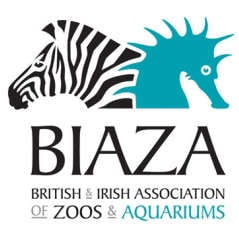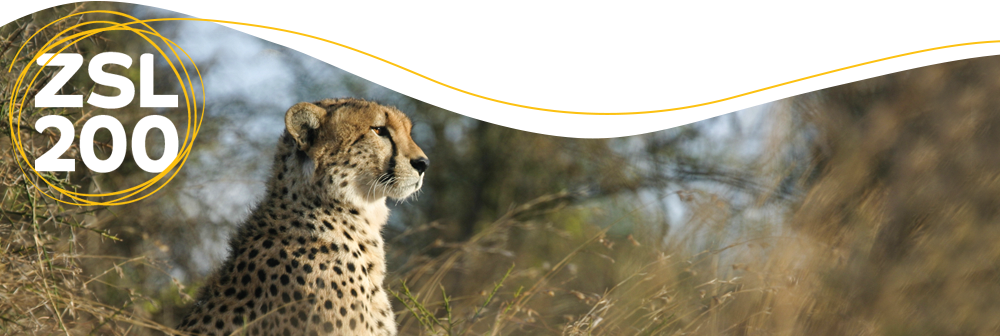- Dashboard
- My Companies
- Company Detail
We’re ZSL (Zoological Society of London), an international conservation charity, and our vision is a world where wildlife thrives. We’re working every day to achieve this, through our science, our field conservation around the world and engaging millions of people through our two Zoos, ZSL London and ZSL Whipsnade Zoos.
ZSL 200: Getting set for the next 200 years
In 2026 ZSL will be 200 years old, marking two centuries of discovery, pioneering, inspiring and delighting through science, conservation and our two Zoos. However, the challenges facing wildlife are increasing: the rate of extinction is accelerating through habitat loss, disease, the illegal wildlife trade, pollution and other human effects. ZSL needs to act now to address these challenges.
We have developed our strategy – ZSL 200 – to help us better tackle the issues facing wildlife today and adapt to those around the corner. It will focus our efforts and operations, with science informing work in the field and using the Zoos as a focus to drive engagement.
visit our zsl 200 dedicated website to find out more
Download a PDF version: ![]() ZSL200 Strategy 2018 (12.17 MB)
ZSL200 Strategy 2018 (12.17 MB)
 Our Vision
Our Vision
A world where wildlife thrives
Our Purpose
To inspire, inform and empower people to stop wild animals going extinct
To tackle the threat to wild animals and help people achieve this positive change, we will:
- Inspire future generations through amazing experiences with animals, giving them a lifelong connection to wildlife and an understanding of the part that they can play.
- Inform the world about the challenges facing wildlife and the ways we all can address these, based on our scientific research, experience and expertise.
- Empower communities, leaders and influencers by giving them methods, evidence and tools to enable people and wildlife to thrive together.

ZSL History
Since Sir Stamford Raffles founded ZSL in 1826, there have been a number of achievements in our conservation work in the wild as well as at ZSL London and ZSL Whipsnade Zoos. Read more about ZSL's history
Famous animals
Over the years ZSL has been home to many famous animals, including Guy the gorilla, Goldie the golden eagle and Winnie, who became one of the most famous bears in the world. Find out more about ZSL's famous animals.
ZSL architecture
When ZSL London Zoo opened in 1828, Decimus Burton was called on to design the grounds and animal enclosures. Many other leading architects have since contributed to the layout of the Zoo, creating a collection of buildings that includes two Grade I and eight Grade II listed structures.
Read more about ZSL's amazing architecture.

Royal Patrons
- HM The Queen is The Patron of ZSL
- HRH The Prince of Wales is The Vice Patron of ZSL
BIAZA
 ZSL is a member of BIAZA (British and Irish Association of Zoos and Aquariums), the professional organisation representing the zoo and aquarium community. Find out more about: BIAZA
ZSL is a member of BIAZA (British and Irish Association of Zoos and Aquariums), the professional organisation representing the zoo and aquarium community. Find out more about: BIAZA
We invest responsibly
Priority Areas
We have identified three priority areas to achieve this vision.
Wildlife & People
Fostering sustainable relationships between wildlife and people – because people thrive when wildlife thrives.
 Coexisting is crucial to a sustainable, healthy world.
Coexisting is crucial to a sustainable, healthy world.
We are focusing on developing, implementing and promoting sustainable use of the world’s resources, allowing humans and wildlife to thrive. In some areas this involves creating ways to allow people and wildlife to live side by side, while in our Zoos we will bring animals and people closer, to generate appreciation and increase wellbeing among people living in urban environments.
Wildlife Health
Ensuring the health of wildlife, improving the health of people and the environment.
 Disease does not respect borders, and the growth of global travel has seen the unprecedented spread of zoonotic diseases – harming both wildlife and human communities.
Disease does not respect borders, and the growth of global travel has seen the unprecedented spread of zoonotic diseases – harming both wildlife and human communities.
We will focus our health research to detect, understand and treat disease, as well as understanding and addressing its causes. We will train and support wildlife health professionals around the world, modelling outstanding animal care in our Zoos.
Wildlife Back from the Brink
Bringing the most threatened species back from the brink of extinction.
 For some species the clock is already ticking, and our work is vital to prevent animals being lost forever.
For some species the clock is already ticking, and our work is vital to prevent animals being lost forever.
We will achieve this through recovery programmes and by influencing policy, convening partners, championing their cause through our Zoos and providing tools, training and methods – underpinned by our science – to bring about a major improvement for threatened species.
Working for ZSL
Our scientists in the laboratory and field, animal management teams at both Zoos, and our veterinarians contribute wide-ranging skills and experience to both practical conservation and the scientific research that underpins our work.
We are committed to the principle of equal opportunities in employment. We apply policies that are determined solely by job criteria and personal ability.
See our Equality and Diversity Policy
From 6 April 2017 employers in Great Britain with more than 250 staff are required by law to publish their gender pay gap information, covering pay and bonuses. The ZSL 2020 Gender Pay Gap report has now been published to show the difference between the average earnings of men and women, which is expressed relative to men’s earnings. Our fourth report shows that the overall gender pay gap is now -0.2%. This is significantly lower than the current UK pay gap of 15.5%.
The results are great news for ZSL but we do however recognise that in order to maintain this as a long-term change we need to continue to be committed to promoting inclusive behaviours including the recruitment and promotion of women in senior roles.
ZSL Gender Pay Report
View our Gender Pay Reports below:
![]() ZSL Gender Pay Report 2018 (488.19 KB)
ZSL Gender Pay Report 2018 (488.19 KB)
![]() ZSL Gender Pay Report 2017 (2.48 MB)
ZSL Gender Pay Report 2017 (2.48 MB)
![]() ZSL Gender Pay Report 2019 (638.07 KB)
ZSL Gender Pay Report 2019 (638.07 KB)


